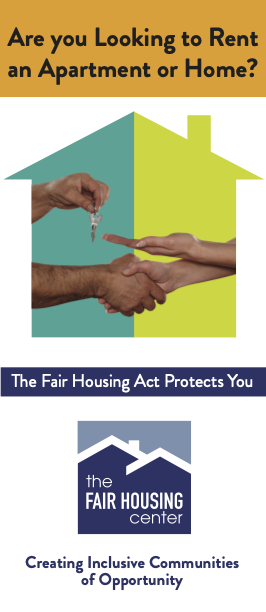Discrimination is Not Always Obvious or Apparent
Landlords and housing providers cannot deny you housing for discriminatory reasons. If you hear the following statements, it may be a sign of housing discrimination:
- “Are you sure you can afford the rent?”
- “We don’t have these units available for people with disabilities.”
- “The neighborhood isn’t child-friendly.”
- “I already rented the apartment to someone else.”
- “You may be more comfortable in another unit/building.”



